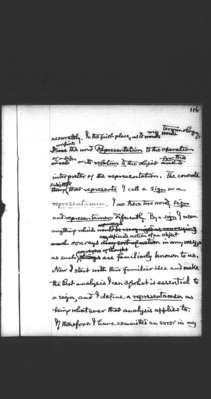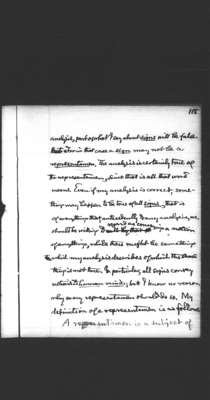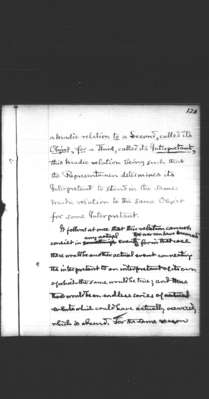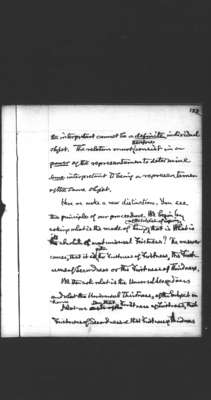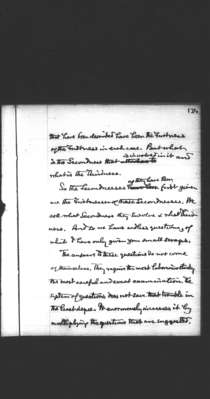Pages
81
116
accurately. In the first place, as to my terminology, I confine the word Representation to the operation of a sign or its relation to the object for the interpreter of the representation. The concrete subject that represents I call a sign or a representamen. I use these two words, sign and representamen, differently. By a sign I mean anything which conveys any definite notion of an object in any way, as such conveyers of thought are familiarly known to us. Now I start with this familiar idea and make the best analysis I can of what is essential to a sign, and I define a representamen as being whatever that analysis applies to. If therefore I have committed an error in my
82
118
analysis, part of what I say about signs will be false. For in that case a sign may not be a representamen. The analysis is certainly true of the representamen, since that is all that word means. Even if my analysis is correct, something may happen to be true of all signs, that is of everything that, antecedently to any analysis, we should be willing to regard as conveying a notion of anything, while there might be something which my analysis describes of which the same thing is not true. In particular, all signs convey notions to human minds; but I know no reason why every representamen should do so. My definition of a representamen is as follows: A representamen is a subject of
83
120
a triadic relation to a Second, called its Object, for a Third, called its Interpretant, this triadic relation being such that the Representamen determines its Interpretant to stand in the same triadic relation to the same Object for some Interpretant.
It follows at once that this relation cannot consist in any actual event that ever can have occurred; for in that case there would be another actual event connecting the interpretant to an interpretant of its own of which the same would be true; and thus there would be an endless series of actual events which could have actually occurred, which is absurd. For the same reason
84
122
the interpretant cannot be a definite individual object. The relation must therefore consist in a power of the representamen to determine some interpretant to being a representamen of the same object.
Here we make a new distinction. You see the principle of our procedure. We begin by asking what is the mode of being of the subject of inquiry, that is What is its absolute and most universal Firstness? The answer comes, that it is either the Firstness of Firstness, the Firstness of Secondness, or the Firstness of Thirdness.
We then ask what is the Universal Secondness, and what the Universal Thirdness, of the subject in hand.
Next we say that Firstness of Firstness, that Firstness of Secondness and that Firstness of Thirdness
85
124
that have been described have been the Firstness of the Firstness in each case. But what is the Secondness that is involved in it and what is the Thirdness.
So the Secondnesses as they have been first given are the Firstnesses of those Secondnesses. We ask what Secondness they involve and what Thirdness. And so we have endless questions, of which I have only given you small scraps.
The answers to these questions do not come of themselves. They require the most laborious study the most careful and exact examination. The system of questions does not save that trouble in the least degree. It enormously increases it by multiplying the questions that are suggested.
